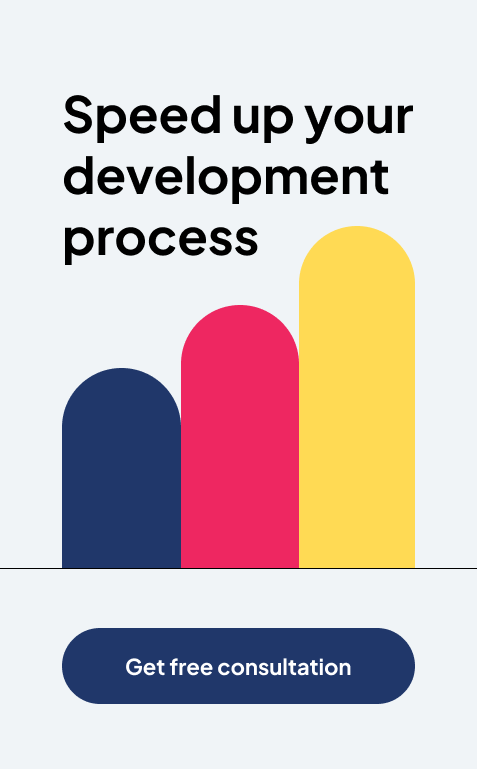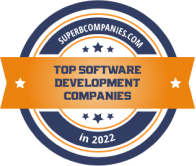Top Trends of DevOps in 2023 and Beyond to Watch Out

Did you know? DevOps is the most popular technology trend. And the reason for that is its reliability in aiding organizations in boosting output, cutting downtime, and encouraging collaboration.
The adoption of DevOps industry trends is without a doubt one of the few notable trends that the new generation has witnessed. As time goes on, it is becoming increasingly evident that DevOps has established itself as one of the most effective Agile frameworks. Larger organizations are more frequently implementing the DevOps methodology to improve their operational effectiveness and achieve quicker results. Modern businesses are well aware of the digital offerings that are popular right now for modernizing settings.
The survey predicted that the DevOps market would expand at a CAGR of 24.7% from 2019 to 2026 and reach a size of $20.01 billion. It is so abundantly obvious that the contribution of DevOps to digital transformation will result in radical transformations across numerous industries.
DevOps will continue to expand and be employed across various industries, from containers to automated pipelines. This post will assist you in comprehending what is changing in the world of DevOps in 2023 and how it may improve your organization if properly adopted. So, let’s get started!
What is DevOps?
DevOps facilitates automated and repeatable software development and deployment by combining IT operations and development. DevOps allows the company to provide software products and services more quickly. The phrase “DevOps” is made up of the phrases “Development” and “Operations.”
It enables businesses to engage in more intense market competition and provide superior customer service. DevOps seeks to accelerate the development of apps so they may be made available more rapidly without sacrificing their quality or level of service. In addition to saving time and money on resource allocation, this enables firms to respond to client requests more quickly.
Why DevOps Matters?
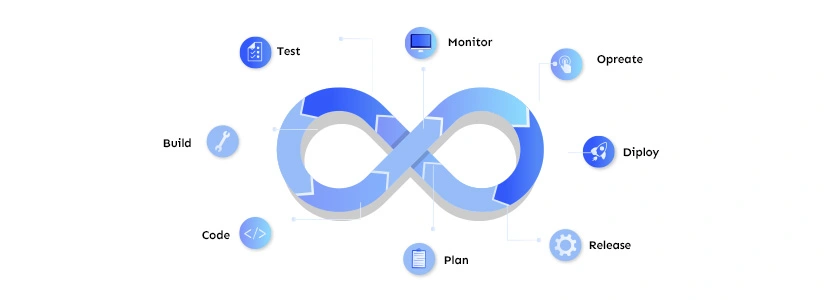
Customer happiness and faster timely delivery of products are two of DevOps’ main goals, coupled with efforts to reduce barriers to communication and cooperation between teams working on development and IT operations. DevOps solutions and services are also meant to encourage business innovation and the continual quest for process improvement.
- The DevOps technique encourages business value delivery that is quicker, better, and more secure for clients of a company.
- This value could be represented by more frequent product improvements, features, or releases.
- It could be related to how quickly new features or product updates are made available to customers while still upholding the essential security and quality requirements.
- It may emphasize how soon an issue or fault is identified, resolved, and then made available once again.
DevOps is supported by underlying infrastructure in a seamless manner. When software is originally built, tested, and then put into operation, the infrastructure supports its performance, availability, and dependability.
DevOps Methods:
Companies can leverage a few popular DevOps techniques to accelerate and enhance product launches. They appear as software development approaches and procedures. The three most well-known are Agile, Scrum, and Kanban:
- Agile.
Agile software development practices from the past have had a big impact on DevOps approaches and technology. Agile programming is used in DevOps approaches such as Scrum and Kanban, to name only two. Daily standups, requirement documenting as user stories, including continuing customer feedback, and being more adaptable to changing needs and requirements are some examples of agile practices. In contrast to the lengthy, traditional “waterfall” development techniques, agile suggests a shorter software development lifecycle.
- Scrum.
To speed up development and quality assurance duties, Scrum describes how group members should cooperate. Scrum approaches are made up of fundamental procedures, particular nomenclature (sprints, time boxes, daily scrum [meeting]), and specialized responsibilities (Scrum Master, product owner).
- Kanban.
Kanban was created in response to efficiency gains realized on the Toyota factory floor. Kanban suggests using a Kanban board to monitor the work-in-progress (WIP) state of software projects.
How do Businesses Benefit from DevOps?
1. Reduction Of Implementation Failure:
Because the development cycle is quicker with DevOps, regular code versions are encouraged. This causes code problems to be quickly and easily found. Agile programming methodologies may be used by teams to lower the number of failed executions. When development teams and activities collaborate to exchange ideas and grow together, recovery from any loss caused by errors is made easier.
2. Quality and Reliability:
The method that businesses conduct their software testing is transformed by DevOps managed services. It raises testing to an important phase of the SDLC and charges each concerned engineer with accountability. It motivates exploratory testing, which can improve software quality by figuring out how to successfully test different software components.
Another key lesson from a sound DevOps strategy is service reliability. Simply said, reliability is a system’s capacity to consistently operate faultlessly within the confines of its environment. Adopting DevOps increases service dependability by enhancing the connection and availability of services required for a business’s efficient operation.
3. Minimal Production Cost:
With proper coordination, DevOps helps to lower the administration and production costs of your departments by combining both maintenance and new upgrades under one bigger roof.
4. Improved Communication and Cooperation:
DevOps improves the communication and cooperation between the team members, which leads to more efficient and successful project operations. The emphasis is on group accomplishment rather than individual objectives. Innovation and experimentation are feasible when teams have more mutual trust. Processes don’t have to wait for specific teams to resolve a problem, either. All systems and procedures become more understandable when we collaborate.
5. Improved Customer Experience:
Through the more responsive development of usable apps, DevOps increases consumer engagement. All apps are quickly created by a team effort, paying close attention to consumer needs and preferences. The end-users are effectively provided for, and the DevOps integrated cultural base continuously develops to enhance customer satisfaction.
6. Increased Efficiencies:
The cornerstone of the DevOps culture is automation since it makes sure that the other important DevOps concepts are followed as well. A DevOps environment may be established utilizing automated procedures to be able to accommodate the product’s rapid growth, fluctuating workloads, and changing demands over time. Traditionally, a development environment is constructed from scratch. The rate at which DevOps solutions develop is crucial. When introducing DevOps in a business, it’s a good idea to hire an expert software automation developer to use an incremental approach because, in most cases, there are several factors involved.
7. Reduce Waste:
Reduce labor by going small. The development of code that is never utilized is thought to be the biggest waste in software. Smaller work increments and fast cycle times in the DevOps environment help to decrease waste.
8. Faster and More Frequent Releases:
The DevOps methodology places the responsibility on all departments to maintain stability and provide new features. Software is distributed swiftly and uninterruptedly as a result, in contrast to the traditional method.
Top Trends of DevOps in 2023 and Beyond to Watch Out
1. DevSecOps:
Enterprises have incorporated the DevSecOps lifecycle to further improve security, one of the most important concerns in the digital era. Accountability and observability have both been streamlined using it.
The fundamental tenet of DevSecOps is that security should be included in software development earlier rather than later. According to the most recent DevSecOps trends, over 40% of Enterprises run DAST tests, 50% run SAST tests, and the remaining 20% scan dependencies and containers.
DevSecOps is an enhanced form of DevOps that places a higher emphasis on security and observability. It entails the democratization of some of the best practices in application development, deployment, and operations. It encourages development and operation teams to run smoothly and strives to protect company operations from outside intrusions.
2. AI/ML Integration In CI/CD Pipelines:
Machine learning and artificial intelligence may have a bigger impact on DevOps in the coming years. Machine learning algorithms might be applied, for instance, to optimize resource consumption in the cloud for cloud cost management or to detect and avoid issues in the software development process. With the sort of valuable insights they provide, it is anticipated that deployment platforms would get more intelligent through the use of ML. Teams would be able to forecast the likelihood that their deployments would fail and learn how to resolve any possible weak points.
Also Read: DevOps Testing Strategy: Why You Need One For Agile Software Development?
AI may boost cooperation across DevOps teams in addition to enhancing automation and problem-solving. Overall, the efficacy and efficiency of software development and maintenance might greatly increase with the incorporation of AI/ML into DevOps. However, it is crucial that businesses thoroughly assess the ramifications of utilizing them and make sure that they are applied ethically and responsibly.
3. Serverless Computing:
The idea of serverless computing entails an organization outsourcing infrastructure and infrastructure-related functions to third parties. How IT businesses conduct business might change due to serverless computing. Serverless is your best option if you are already utilizing the DevOps technique or are thinking about implementing it inside your company.
The serverless computing strategy has considerably aided the DevOps process. It has effectively filled the gap between Development and Operations with the addition of operability. Additionally, it made it possible for the host to build, test, and deploy the DevOps pipeline code.
4. Low Code Application Development:
The total lifespan of application development is accelerated because of DevOps. The advantages of agile and DevOps may be further extended with the help of low-code platforms. With the aid of the DevOps method, businesses have already opted for low code to create and deliver apps quickly. With no added complexity, low-code application development accelerates the development process, which accounts for the increased productivity of businesses that switch to low-code platforms.
Any business may get a strategic advantage in the demanding and rapidly changing software business because of low code’s ability to unlock agility. Low-code DevOps, a fusion of software development and IT operations, shortens the software development life cycle.
Low-code programs at first became a DevOps trend during the epidemic because they increased developer productivity even while they were working remotely. We anticipate low-code solutions to widely support the whole DevOps model over the coming years, including
- Software design and app ideation
- The development and testing processes
- Release management
- And even documentation
5. Multi-Cloud Environments:
Multi-cloud environments and DevOps work well together and are related in many ways. Collectively, DevOps cloud services offer advantages and enhance one another’s worthwhile boosting production. However, combining DevOps with multi-cloud is still rare. The bulk of companies with a strong DevOps pipeline is still a long way off from implementing a multi-cloud setup.
6. Chaos Engineering:
DevOps can deal with a complication with the aid of chaos engineering. Teams may design a solid application to support company operations with its integration into DevOps. Due to its many benefits, including the potential for organizations to provide better customer experiences, save maintenance costs, and provide greater insight into how apps are working, chaos engineering will be included in the list of DevOps trends.
7. Microservices Architecture Adoption:
Why are microservices so adored by DevOps professionals? Their fragmented character is the sole cause of it. These microservices allow modifications to be done throughout a network without affecting related systems, in contrast to monolithic design. IT experts will find it simpler to develop and expand apps as a result.
Additionally, microservices include advantages such as improved scalability, quicker deployment, greater data governance, and increased data security. With all these beneficial properties, it is easy to understand why the market for microservices architecture will increase at a CAGR of 18.6% and reach 21.67 billion USD by 2030. One of the top DevOps trends for 2023 is microservices architecture, which will play a major role in accelerating infrastructure scalability and agility.
8. Application Performance Analysis through DevOps:
APM is essential for enhancing user experience. The year 2023 will focus more on survival due to the current economic turmoil; as a result, businesses must adapt to these industry demands and provide solutions that are solely required for the clients. DevOps application performance analysis would be quite beneficial in this.
9. Rise of Hybrid Cloud Environments:
A hybrid cloud architecture is becoming increasingly popular, where certain workloads are run on-premises and others on the cloud. The necessity for apps to function across several cloud locations and make extensive use of shared resources is also dictated by requirements and mostly requires assistance from DevOps solutions and services. As a result, DevOps processes will need to change to enable not only hybrid cloud deployments but also streamlined cross-cluster monitoring, backups, and other functions.
10. GitOps:
One of the greatest DevOps new trends to be included in the DevOps process is GitOps. An operational process and infrastructure built on code are known as GitOps. Version control, teamwork, CI/CD technologies, and other DevOps best practices are employed in this growing version of infrastructure as code and application development. GitOps, a relatively new addition to the DevOps workflow, aids teams in automating and managing infrastructure.
It aids in automating, controlling, and controlling infrastructure. It has provided IT operation managers and developers the ability to use Git for gathering and deploying a variety of apps because it is based on the Kubernetes architecture. To develop, test, and deploy software quickly and as efficiently as possible, it also prioritizes increased releases as well as efficient delivery.
11. Kubernetes:
K8, which stands for Kubernetes, is a commonly used abbreviation for an open-source platform that facilitates managing workloads and container-based services. Developers may either increase or decrease the resources due to the ongoing and independent container-based framework it offers for integration. Its emergence as one of the top DevOps trends for 2023 is largely due to this. In recent times, 48% of developers have used Kubernetes to integrate containers. Additionally, Kubernetes supports cross-functional collaboration and ensures that deployment downtime is kept to a minimum to comply with industry standards and the best DevOps practices.
- Google created Kubernetes, a free and open-source piece of software.
- It makes it easier to scale, deploy, and manage containerized applications across a cluster of Linux systems.
- It has a thriving developer ecosystem that is always trying to improve it.
- Several of the biggest cloud service providers, including Amazon Web Services (AWS), Google Cloud, Microsoft Azure, Alibaba Cloud, and Oracle Cloud, strongly promote it.
12. Docker will Keep Improving the Development Platform:
Developers frequently use Docker because it makes it easier for them to swiftly build, package, and deploy apps on the cloud and because it streamlines the development process. The simplicity of Docker and how rapidly it integrates containerized software into the production environment make it appealing.
Contrary to original expectations, Docker was not deemed obsolete when Kubernetes stopped supporting it. It’s crucial to remember that Docker wasn’t created with Kubernetes in mind from the beginning. Due to the enormous developer community that uses it and the simplicity it provides, Docker has been able to sustain its prominence.
The ongoing improvement of Docker’s developer experience is a DevOps trend to look out for in 2023. To streamline, accelerate, and improve the deployment process, the organization is currently creating new features and tools. Its main goal is to provide a simple user interface while optimizing procedures. As a result, businesses that use Docker may anticipate having more scalability and agility.
Bottom Line
Whatever the future might hold for IT organizations, DevOps will develop and have a significant impact on the sector. DevOps technologies and practices are continuously used by businesses and teams. The survey indicates that 50% of organizations said they have been using DevOps for more than three years. DevOps trends described above assist your firm in quickly moving past automation and concentrating on high-quality outputs. While you can focus on the trends, you need to leverage them by hiring an experienced and reliable software development partner like Imenso Software. If you have a project in mind, reach out to our experts and get a free estimate!
Similar Posts
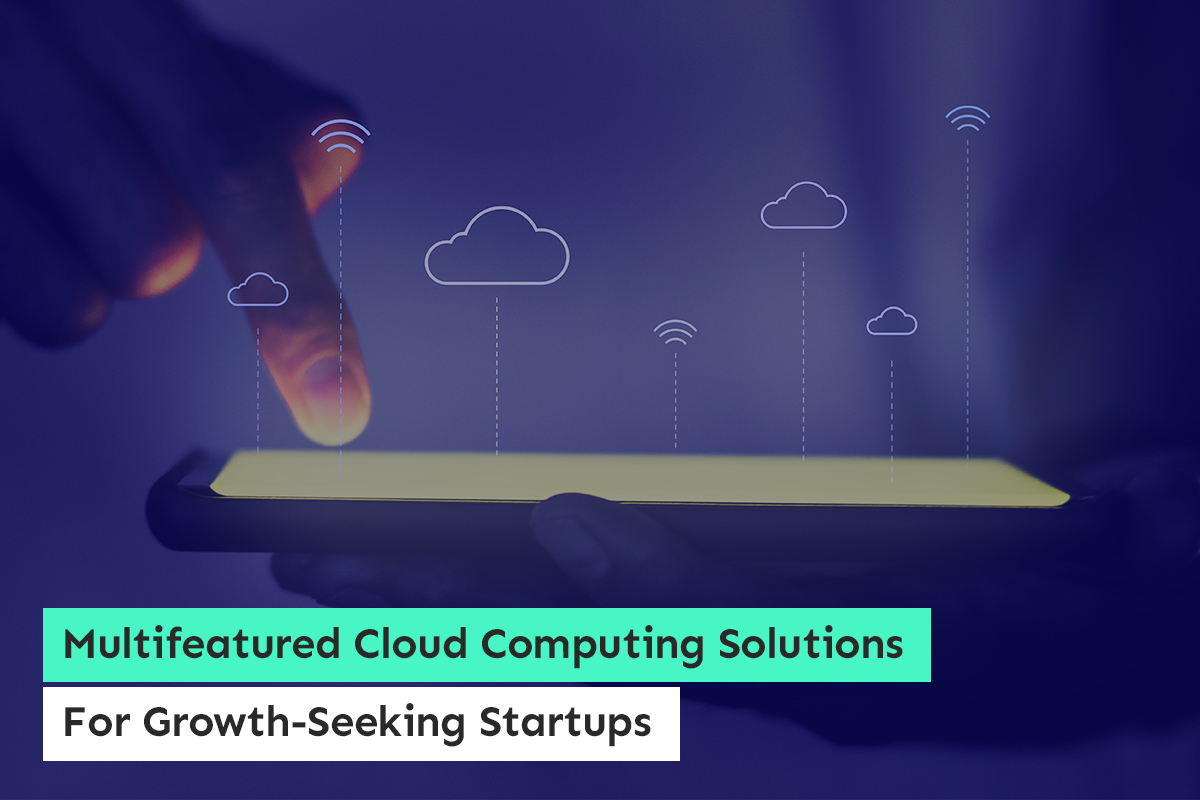
Multifeatured Cloud Computing Solutions For Growth-Seeking Startups
Unlike giant tech companies, startups are based on innovative ideas. Their teams develop a product the world hasn’t seen before. Startups are new businesses, Usually led by an enthusiastic young team excited to launch their idea into the world with a clear goal in sight. But also, unlike big tech companies, they lack funding, resources, […]...

Microsoft Azure vs. Other Cloud Platforms: Why Expert Developers Make the Difference
Now, with the help of cloud computing, a small startup in Silicon Valley can compete head-on with world giants. No need for a vast server room, no necessity for huge investment upfront – just pure, scalable technology at your fingertips. The heart of modern business innovation lies in cloud computing. By the year 2027, it […]...
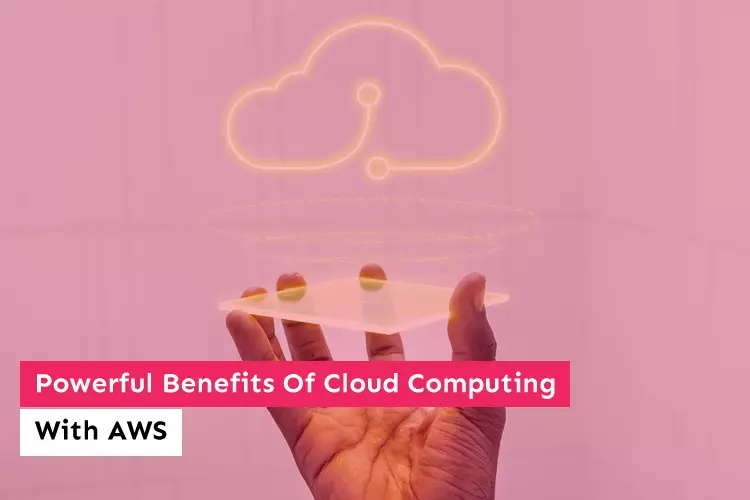
Powerful Benefits Of Cloud Computing With AWS
Cloud computing is a game-changer for businesses, is an understatement. The technology has been around for over two decades and has been the backbone of prominent companies of today. ...



